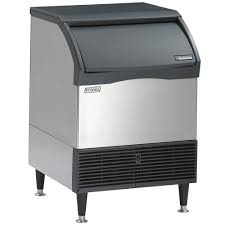
Choosing the Right Ice Machine for Your Business Needs
When it comes to equipping your business with the right tools for success, selecting the perfect ice machine is more crucial than it may appear. Ice is a fundamental component in various industries, from hospitality to healthcare, playing a role in customer satisfaction, food safety, and operational efficiency. Here's how to ensure you make an informed decision that aligns with your unique business needs.
Understanding Your Business Requirements
Before diving into the specifics of machine types and features, it’s important to assess your business's daily ice usage. Restaurants, for instance, typically require about 1.5 lbs of ice per meal served, while bars might need more, considering the ice used in cocktails. Healthcare facilities prioritize different aspects like ice form since nugget ice is more suitable for patient care. Understanding your peak demand and usage patterns prevents bottlenecks during busy periods.
Size and Capacity
Ice machines come in various sizes, with capacities ranging from small under counter units producing 50 pounds a day to large modular systems that can churn out over 1000 pounds. A common mistake is underestimating future growth – it's often wise to invest in a machine that can handle more than your current demand to accommodate business scaling without requiring an immediate upgrade.

Type of Ice
The shape of ice isn't just about aesthetics; it also affects the rate at which ice melts and subsequently, the beverage it cools. Flakes and nuggets are ideal for quick cooling and are preferred in healthcare for their chewable texture. Cube ice melts slower, preserving drinks longer, which is perfect for restaurants and bars. Gourmet ice, with its unique shape and clarity, is best suited for upscale dining and events where presentation is key.
- Cube Ice: This is the most common type of ice, seen in everyday beverages. It melts slowly and cools drinks quickly without watering them down too rapidly. Perfect for sodas, spirits, and water, cube ice comes in full-size and half-size options. Full-size cubes are best for high-quality spirits, while the smaller ones are ideal for blended drinks.
- Crescent Ice: These half-moon-shaped pieces of ice don't stick together, which allows for more liquid in the glass, and the drink to be mixed right in the glass without stirring. It's a popular choice for soft drinks, mixed drinks, and iced coffee.
- Nugget Ice: Also known as “chewable ice,” nugget ice is soft and chewable, making it a favorite in healthcare for patient hydration and comfort. It’s also preferred for blended cocktails and smoothies since it blends easily without causing wear on the blender blades.
- Flake Ice: Flake ice is the ice of choice for food displays, such as seafood and produce, because it packs well and molds to any shape. Its cooling properties also make it suitable for therapeutic use in healthcare settings.
- Gourmet Ice: This type of ice is larger, crystal-clear, and often comes in unique shapes, like octagons or cylinders. It's designed to melt very slowly, which makes it ideal for premium spirits and upscale beverages.
- Cylinder Ice: Cylinder ice has a hollow middle and cools drinks quickly due to its increased surface area. This type of ice is often used in automated dispensing systems in fast-food establishments.
- Crushed Ice: While not produced by a traditional ice machine, crushed ice can be made from cube or nugget ice. It's often used in cocktails like mojitos and margaritas because it cools the drink quickly and provides an appealing aesthetic.
- Specialty Ice: This category includes oversized cubes, spherical ice, or unique shapes tailored for specific beverages and industries. Specialty ice is often found in high-end bars, restaurants, and event catering where the presentation is as important as the drink itself.
Each type of ice not only serves a functional purpose, such as cooling and preserving but also enhances the consumer's experience. The right ice can elevate a drink, contribute to the sensory enjoyment of a meal, and even prolong the freshness of perishable foods. Knowing the differences can help a business select an ice machine that best serves its specific needs, ensuring that every glass or display with ice is a testament to the quality and care put into service.
Energy Efficiency
Modern ice machines are more energy-efficient than ever, but they still differ significantly in how much power they use. An energy-efficient model might cost more upfront but can save a significant amount in utility costs. Look for ENERGY STAR-rated machines that often come with rebates and will lower your business's carbon footprint.
Ease of Cleaning and Maintenance
Regular cleaning and maintenance are essential for ensuring longevity and hygienic ice production. Machines with easy access to parts and simple cleaning procedures save time and labor. Moreover, some units come with self-cleaning features which, while increasing upfront costs, can pay off in the long run in reduced maintenance needs.
Reliability and Warranty
An ice machine is a long-term investment, so reliability should be a top priority. Research brands and models with strong reputations for durability. Additionally, understand the warranty coverage—what it includes and for how long, as this can significantly affect future repair costs.

Local Climate and Water Quality Considerations
The environment where you'll install the ice machine can affect its efficiency. Hotter climates may require machines with higher production rates. Water quality impacts not just the taste and clarity of the ice but also the machine's longevity, making water filtration systems an important consideration.
Compliance and Sanitation
In today’s world, hygiene and safety regulations are stringent and critical. Ice is considered a food item by health departments, so your ice machine must meet specific sanitation standards. Machines certified by NSF (National Sanitation Foundation) ensure that your business complies with these regulations, preventing health code violations and ensuring the safety of your customers.
Noise Level
Particularly in settings like offices or small eateries, a noisy machine can be disruptive. Check the decibel levels of the ice makers you’re considering to ensure they won't negatively impact the atmosphere of your space.
Cost of Ownership
Finally, look beyond the price tag and evaluate the total cost of ownership, which includes the initial purchase, installation, supplies, maintenance, and operating expenses. An inexpensive machine might become costly if it’s inefficient or requires frequent repairs.
Understanding the Different Types of Ice Machines
When you're in the market for an ice machine for your business, it's crucial to understand the various types available and how they match up with your service requirements. Here’s a closer look at the different types of ice machines:
- Modular Ice Machines: Modular ice machines are designed for businesses that require a large amount of ice. These machines only make ice, which means you will need a separate storage bin. They are ideal for restaurants, hospitals, and hotels where there is a high demand for ice across various departments.
- Undercounter Ice Machines: Undercounter ice machines, as the name suggests, are compact enough to fit under a counter, making them perfect for small bars, cafes, or businesses with limited space. Despite their smaller size, they efficiently produce a decent supply of ice and usually come with a built-in storage bin.
- Countertop Ice Dispensers: Countertop ice dispensers are a great fit for fast-food restaurants or self-service areas in a cafeteria or hotel. These machines allow customers to dispense ice directly into their containers, reducing the need for staff intervention and promoting efficiency.
- Combination Ice/Water Machines: For convenience and dual functionality, combination ice/water machines dispense both ice and water from the same unit. These are a smart choice for gymnasiums, office spaces, or healthcare settings where individuals might seek both hydration and ice for injuries or beverages.
- Air-cooled vs. Water-cooled Ice Machines: The cooling system in an ice machine is also a significant factor. Air-cooled machines are generally more energy and water-efficient and easier to install. However, in hotter climates or in areas with poor ventilation, a water-cooled machine might be more effective, though it typically uses more water and might have higher operational costs.
- Specialty Ice Machines: For businesses that need unique shapes of ice, such as gourmet ice for cocktails or flaked ice for displaying seafood, specialty ice machines are available. These machines cater to niche business needs where the ice shape and clarity are part of the customer experience.
- Self-contained Machines: Self-contained machines have a built-in storage bin and are an all-in-one solution for moderate ice production needs. These units are straightforward to install and are a good middle ground between under-counter models and high-volume modular machines.
Understanding the various types of ice machines and their functionalities allows you to narrow down the best options for your business. Whether it’s for cooling beverages, preserving food, or enhancing presentation, the right ice machine can be a significant asset for your service industry or hotel business.

Choosing an ice machine isn't just about the immediate impact on daily operations; it's about selecting a tool that will contribute to the efficiency, hygiene, and overall quality of your service. Take the time to consider your options, consult with experts, and select a machine that aligns with your business goals and the expectations of your clientele.
Choosing the right ice machine is a balancing act between current needs and future growth, efficiency, and total cost of ownership. By considering these factors, you can ensure that your selection not only meets the day-to-day demands of your business but also contributes positively to the overall customer experience.
Whether you’re looking to upgrade your current ice machine or you're setting up a new operation and need the best option on the market, we’re here to assist you. We understand that every business has unique needs, and we’re committed to helping you find the perfect fit.

Leave a Reply